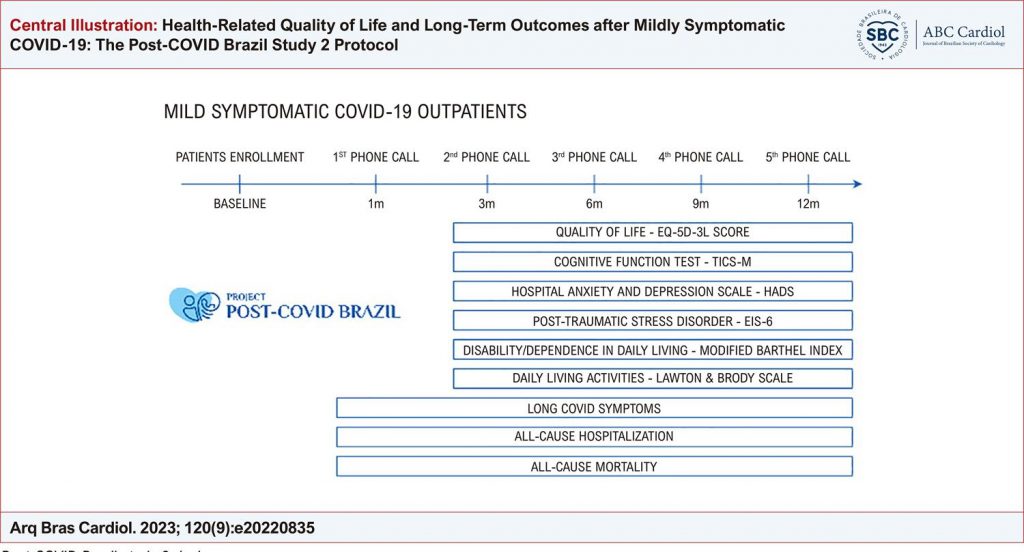Arq. Bras. Cardiol. 2023; 120(9): e20220835
Health-Related Quality of Life and Long-Term Outcomes after Mildly Symptomatic COVID-19: The Post-COVID Brazil Study 2 Protocol
This Original Article is referred by the Short Editorial "Health-related Quality of Life and Long-term Outcomes after Mildly Symptomatic COVID-19: Exploring the Protocol".
Abstract
Background
The long-term effects of mild COVID-19 on physical, cognitive, and mental health are not yet well understood.
Objective
The purpose of this paper is to describe the protocol for the ongoing “Post-COVID Brazil” study 2, which aims to evaluate the factors associated with health-related quality of life and long-term cardiovascular and non-cardiovascular outcomes one year after a mild episode of symptomatic COVID-19.
Methods
The “Post-COVID Brazil” study 2 is a prospective multicenter study that plans to enroll 1047 patients (NCT05197647). Centralized, structured telephone interviews are conducted at 1, 3, 6, 9, and 12 months after COVID-19 diagnosis. The primary outcome is the health-related quality-of-life utility score, assessed using the EuroQol-5D-3L (EQ-5D-3L) questionnaire at 12 months. Secondary endpoints include the EQ-5D-3L at 3, 6, and 9 months, as well as all-cause mortality, major cardiovascular events, hospitalization, return to work or education, persistent symptoms, new disabilities in instrumental activities of daily living, cognitive impairment, anxiety, depression, and post-traumatic stress symptoms at 3, 6, 9, and 12 months after SARS-CoV-2 infection. A p-value < 0.05 will be considered statistically significant for all analyses.
Results
The primary endpoint will be presented as the overall frequency of the EQ-5D-3L domains 12 months after SARS-CoV-2 infection. Main analysis will explore the association of independent variables with the study outcomes.
Conclusion
The “Post-COVID Brazil” study 2 aims to clarify the impact of long COVID on the quality of life and cardiovascular and non-cardiovascular outcomes of Brazilian patients who have had mild COVID-19.
Keywords: Brazil; COVID-19; SARS-CoV-2; Signs and Symptoms
965

